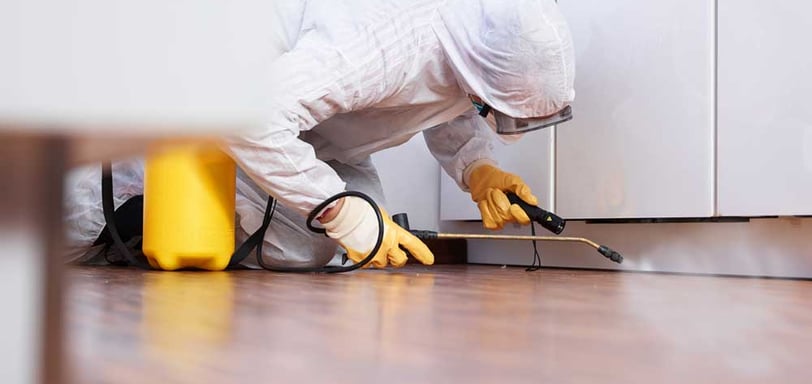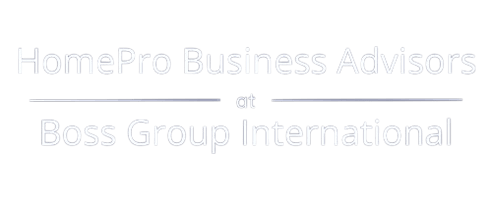Metrics that Matter - Remediation Services


Metrics That Matter: What Remediation Business Owners Need to Know Before Selling
If you own a remediation business in Florida and are thinking about selling, whether now or in the future, understanding what buyers are looking for is critical to maximizing the value of your business.
Buyers in today’s market are savvy and selective. They don’t just want a "busy" business, they want one that is profitable, fully licensed, compliant, and capable of running smoothly without you.
In this article, we’ll break down the key metrics that buyers evaluate, highlight Florida-specific regulatory issues, and share actionable strategies to help you position your business for a successful, high-value sale.
Why Metrics Matter When Selling a Remediation Business
The remediation industry is unique and so are the metrics that matter to buyers. Whether your company specializes in water damage, mold, fire restoration, biohazard, or storm damage, buyers want to see measurable indicators of stability, profitability, and compliance.
For Florida-based businesses, licensing and insurance are essential. In particular, mold remediation and biohazard cleanup require strict adherence to state licensing laws, and insurance coverage is mandatory. Without these in place, many buyers will walk away.
Florida’s Remediation Industry: Why Buyers Are Interested
Why Florida?
Florida's humid climate, frequent hurricanes, and aging building stock create constant demand for remediation services. Water and mold damage are everyday issues in both residential and commercial properties, making Florida one of the most attractive markets in the U.S. for restoration and remediation businesses.
Who’s Buying?
Private equity firms building home service and restoration platforms.
National restoration companies expanding into Florida markets.
Owner-operators with the required licenses seeking turnkey opportunities.
Top Buyer Concerns:
Proper licensing and compliance.
Recurring referral relationships (insurance companies, adjusters, property managers).
Profitability and operational efficiency.
Skilled, certified workforce.
Reputation and customer satisfaction.
Top Metrics Buyers Analyze When Evaluating a Remediation Business
1. Revenue and Service Mix
What It Is: Total annual revenue, broken down by service type (e.g., water, mold, fire, biohazard, storm damage).
Why It Matters: A diverse mix of services shows stability and broad market reach.
What Good Looks Like:
Balanced revenue from multiple service types - not just storm work.
Combination of insurance-based and private pay clients.
What’s Concerning:
Overdependence on storm damage (highly cyclical).
Only offering mold remediation (narrow focus limits growth).
2. Gross Profit Margins
What It Is: Revenue minus direct costs (materials, subcontractors, labor).
Why It Matters: High margins reflect efficient operations and smart pricing.
What Good Looks Like:
30-50% gross margins, depending on service.
Consistent margins year over year.
What’s Concerning:
Declining margins due to poor cost control or underpricing.
3. Recurring Referral Relationships and Contracts
What It Is: Ongoing relationships with insurance companies, adjusters, property managers, and HOAs.
Why It Matters: These relationships provide a steady stream of jobs, reducing revenue risk.
What Good Looks Like:
Multiple strong referral relationships.
Formal or long-standing informal agreements.
What’s Concerning:
No established partnerships - relying solely on direct customer calls.
4. Customer and Insurance Concentration
What It Is: Percentage of revenue from top clients, including insurance carriers.
Why It Matters: A well-diversified customer base reduces risk.
What Good Looks Like:
No single customer or insurance partner makes up more than 10-15% of total revenue.
What’s Concerning:
Heavy reliance on one adjuster, insurance carrier, or contractor.
5. Licensing & Regulatory Compliance (Florida-Specific)
What It Is: Proper state licensing for services, especially mold and biohazard remediation.
Why It Matters: Florida mandates strict licensing; buyers require full compliance.
What Good Looks Like:
Active Mold Remediator License.
Proper insurance: liability and workers’ comp.
Compliant work processes (permits, safety).
What’s Concerning:
Expired or absent licenses.
Improper permitting or non-compliant work.
6. Workforce and Certifications
What It Is: Number and quality of technicians, including certifications (IICRC, OSHA, mold/biohazard).
Why It Matters: A skilled, certified team is a key asset.
What Good Looks Like:
Trained, certified staff (IICRC, OSHA).
Low turnover and solid experience base.
What’s Concerning:
Untrained or uncertified staff.
High turnover and staffing gaps.
Operational Elements That Drive Value
Standard operating procedures (SOPs) for every service line.
Modern job management software (e.g. DASH, Encircle, Xactimate) for estimating, scheduling, and compliance.
Accurate, organized financials - clear and clean for due diligence.
Fleet and equipment - properly maintained trucks, dehumidifiers, air scrubbers, PPE.
Proper insurance meeting Florida standards.
Strong online reputation - Google, Yelp, BBB reviews.
Common Mistakes Sellers Make in the Remediation Industry
Failing to maintain proper licenses and insurance - instant deal-breaker.
Messy or incomplete books - causes buyers to walk away.
Over-reliance on a single referral source - revenue risk.
No documented processes - hard for a buyer to step in.
Weak or untrained workforce - reduces business value.
Ignoring reputation management - negative reviews reduce buyer confidence.
Actionable Tips to Improve Key Metrics Before Listing
Diversify service offerings - add biohazard, fire, or storm damage work to balance revenue.
Improve margins - review pricing, materials purchasing, and job efficiency.
Build and formalize referral relationships - insurance companies, adjusters, property managers.
Ensure licensing compliance - review and update Mold Remediator and other licenses.
Invest in workforce training - certify staff (IICRC, OSHA), reduce turnover.
Use job management software - streamline and professionalize operations.
Clean up financial records - CPA-reviewed, separated from personal expenses.
Enhance reputation management - actively collect customer reviews, address complaints.
Conclusion: Preparing Your Florida Remediation Business for a Successful Sale
Florida remediation companies are high-value assets in a growing market, but only if they’re properly licensed, profitable, and well-run.
By focusing on the right metrics, improving operations, and ensuring compliance, you’ll position your business for a smooth, successful sale, and maximize the price buyers are willing to pay.
Don’t wait until you’re ready to sell, start making these changes now to protect and grow your business’s value.
Thinking of selling your Florida remediation business?
Contact us for a confidential consultation and learn how to maximize your company’s value before going to market.
